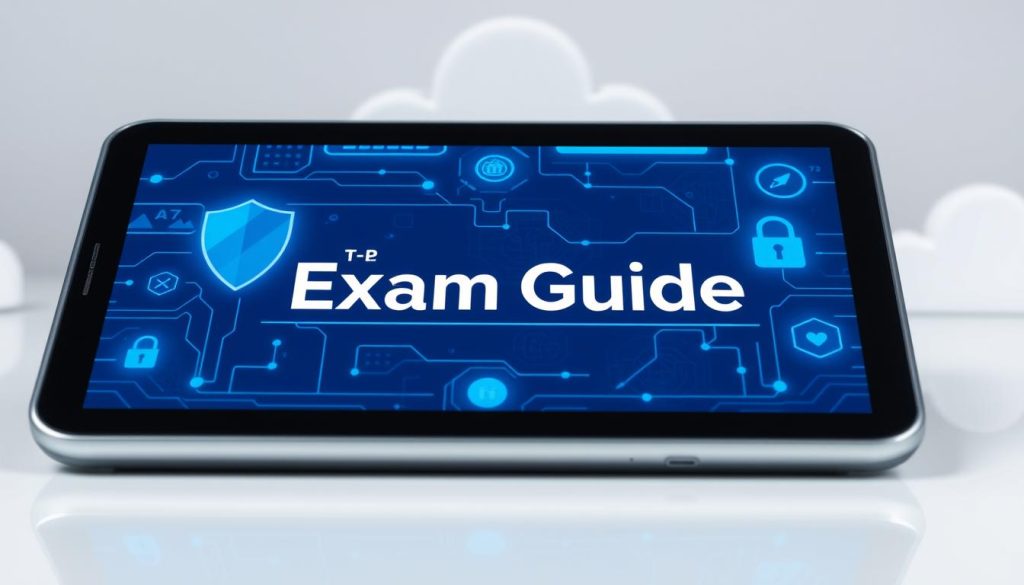Getting ready for the SC-900 (Microsoft Security, Compliance, and Identity Fundamentals) exam is a big step. It’s a key part of learning about identity and access management, cloud security, data protection, and following rules. This guide will give you the knowledge and skills to do well on the SC-900 exam. You’ll become a skilled Microsoft security, compliance, and identity pro.

Identity and access management (IAM) is key to keeping data and systems safe. It makes sure the right people have access to what they need. At the center of IAM is Azure Active Directory, Microsoft’s cloud service for managing identities.
Azure Active Directory helps organizations control who can do what. It lets them manage user identities and permissions well.
Azure Active Directory has strong access control features. It includes multi-factor authentication for extra security. Users must prove who they are with more than just a password.
It also has role-based access control (RBAC). This lets organizations manage user permissions closely. Users can only see and do what they’re supposed to.
Good identity management covers a user’s whole life cycle. It includes setting up, managing, and removing user access. Companies need strong identity protection strategies to keep threats away.
This means using risk assessment, security policy enforcement, and following industry standards. This keeps the identity management system safe and up to code.
Learning about identity and access management helps organizations stay safe. It protects their data and meets rules. Understanding these basics is vital for keeping information secure in today’s digital world.
The SC-900 exam is key for those wanting to show they know a lot about cloud security and data protection. It checks if you understand Microsoft’s security and identity solutions. This includes Azure Active Directory and Microsoft 365 security.
To do well on the SC-900 exam, you need to know a few important things:
Passing the SC-900 exam shows you can handle Microsoft’s security, compliance, and identity solutions. This makes you very valuable to companies looking to improve their cloud security and data protection.
| Exam Details | Key Topics Covered |
|---|---|
| Format: Multiple-choice and case study questions | – Security operations and threat mitigation – Compliance requirements and standards – Identity and access management – Information protection and data governance |
| Duration: 120 minutes | – Cloud security in Microsoft 365 – Compliance management and regulatory compliance – Risk assessment and security policies – Cybersecurity fundamentals and data protection |
| Passing Score: 700 (out of 1000) | – Security compliance and risk management – Identity lifecycle and protection strategies – Data protection compliance and risk mitigation |
By learning what the SC-900 exam covers, you can become an expert in Microsoft security, compliance, and identity. This opens up new job opportunities and helps your organization stay safe and compliant.
In today’s digital world, keeping cloud security and data safe is crucial for all businesses. The SC-900 exam teaches us about cloud security basics, managing data safety, and fighting off threats.
Managing identity and access management (IAM) is key in cloud security. It makes sure only the right people and devices can get into cloud resources. With strong IAM, you can lower the chance of data leaks and unauthorized access.
Data protection is also vital. It means keeping sensitive cloud data safe, following rules, and using good data management. There are many ways to protect data, like encryption and access controls.
By getting good at cloud security and data protection, you’ll be ready for the SC-900 exam. You’ll also keep your organization’s cloud data safe and sound.
This guide has given you a deep understanding of the SC-900 exam. You now know a lot about identity and access management, cloud security, and data protection. This knowledge will help you show your skills in Microsoft’s security, compliance, and identity fundamentals. It will also boost your IT career in cloud security.
We covered important parts of the SC-900 exam, like compliance requirements and security operations. You learned about identity management and compliance standards. You also got to know how Azure Active Directory and Microsoft 365 Security work together.
This guide has prepared you to be a security fundamentals expert. You now understand identity protection, data governance, and regulatory compliance. You can handle identity lifecycle and security compliance. This makes you a key player in cybersecurity fundamentals and data protection compliance.